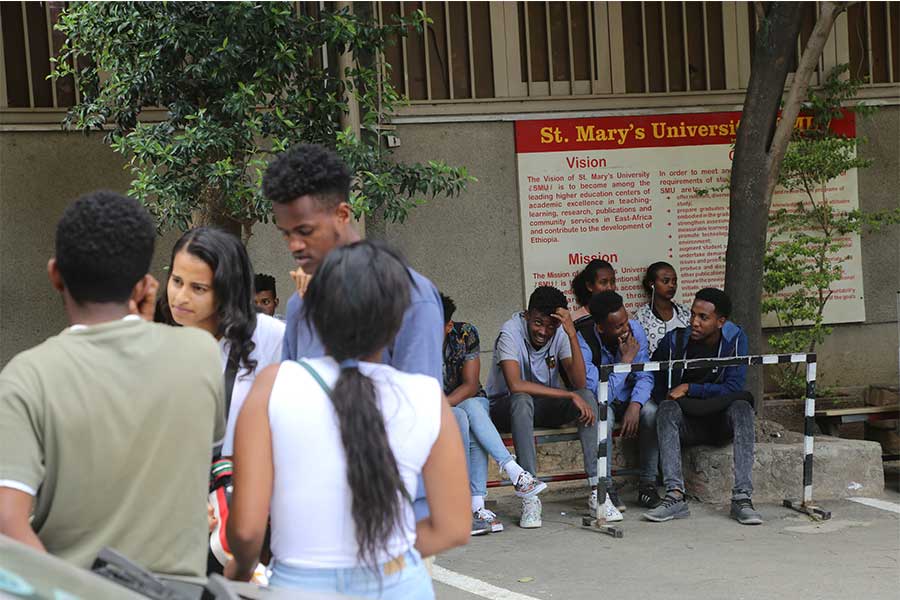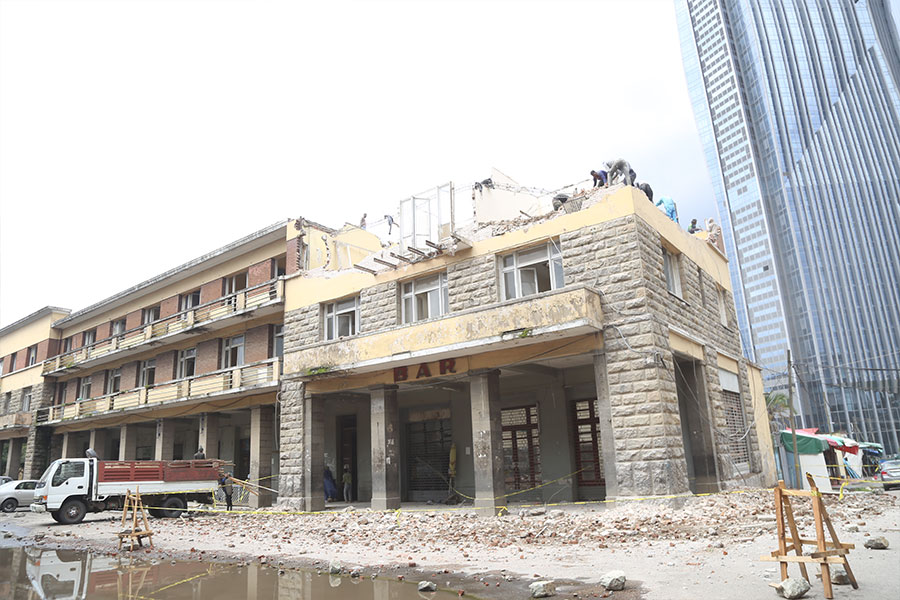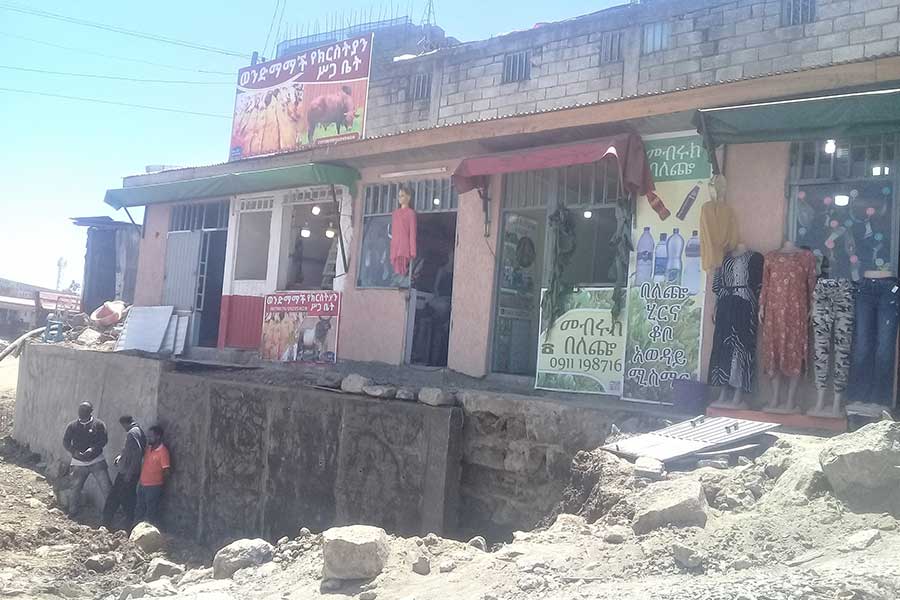
Agenda | Dec 07,2019
The outing of the Dergue, a left-leaning military junta, in the 1990s was met with a certain level of optimism by some circles in Ethiopia. It included individuals whose assets had been nationalised by a regime that was desperately attempting to play to the socialist tunes of the student movements of the late 1960s and early 1970s. Private property was abolished and assets nationalised without deliberation or means to recourse.
It only made sense then that the victims of the regime would seek restitution once a collection of rebel groups entered Addis Abeba in the early 1990s and took over the exercise of state power. One of the enthusiastic supporters of the campaigns to have nationalised property returned was Yishak Kifle, who initiated an “economic empowerment committee.” Utilising peaceful protests to call attention to their case, he played a role in addressing an injustice he believed had been committed.
It was a bit of history in a man’s life that nonetheless does not figure all that much in the eyes of those that knew him or were close family members. He had business interests, was a good student of Ethiopian history and participated in human rights activism. Until his passing on July 1, 2020, of a heart attack, he remained active and maintained a positive outlook on life.
A case in point was a lunch he had at the Habte house a week before his passing. He had come from Adama, aka Nazreth, where he maintained a house and stayed, because he found the altitude preferable. In his mid-80s, his health had seen better days and now he sometimes had difficulty breathing. But these were no reasons to bring down his general sense of light-hearted optimism.
“I am full of projects,” he would say when he was asked by the hosts if he was alright, indicating he was active professionally to suggest that the going was as good as it could be.
It was a sense of humour that his friend Demissie Habte (MD), a pediatrician that got to know Yishak as they both spent years between Ethiopia and the United States. They were practically neighbours while living in the latter, and Demissie was witness to how the room lighted up wherever Yishak went and the sharp wit he displayed in conversations.
“Call me Gashe,” he used to quip to Demissie - who uses adjectives like “kind” and “giving” to describe his late friend - despite being the same age but older by about a month.
Survived by three daughters, after his wife passed away just three months ago, Yishak's generous nature extended to supporting churches of the religion he was a devout follower of: Orthodox Christianity. He made financial contributions to the renovation of churches, participated in giving services during religious events and was a board member for two years at a church in Maryland, the United States. His final resting place was the Holy Trinity Cathedral Church when his funeral took place on July 7, 2020.
His devoutness was informed by a family history that calls back to the royalty of Emperor Haile Selassie’s time. Coming from a Dejazmach family, he was born at around the time Fascist Italy invaded Ethiopia in the mid-1930s in Assela, in what was then an Arsi province. It was a tough time for many Ethiopians who had assumed they had shaken the yoke of colonialism back in the early 19th century, and the fortunes of his family was no different during this period.
The family had to spend the early years of Yishak’s life in a migrant camp in Kenya, until they returned following the end of the occupying Italian force and the reinstitution of Haile Selassie to power. Having studied first in traditional church settings, he was 10 when he went to boarding school at Teferi Mekonnen, one of the few modern institutions of education at the time.
Much of his later life was spent in Britain and the United States until he returned in the early 1960s to be employed at the Foreign Ministry in the imperial government. But it was only a brief stint there, and he would soon enter the private sector, where he would remain for the rest of his life. His business activities extended from insurance to construction and agriculture.
In later life, he increasingly became active in politics. He was a member of the Coalition for Unity & Democracy (CUD) Party, Kinijit, the main opposition during the 2005 elections. His enthusiastic political activity got him in trouble with the government of the time, and he was jailed for a few days during the heady days of what was the most contested election since Ethiopia became a federal republic.
The highlight of his political career was running for a seat on the Addis Abeba City Council. He was asked to divulge his ethnic identity, which he refused to do only to be told that he could not be registered as a candidate, according to Yohannes.
“Yishak took the matter to the court and succeeded in running for office with a registration card that read, 'Ethiopian,' in the blank space that was supposed to identify his ethnicity,” says Yohannes. “It was one of his victories.”
PUBLISHED ON
Jul 13,2020 [ VOL
21 , NO
1055]

Agenda | Dec 07,2019

Radar | Jul 30,2022

Radar | Jul 03,2021

Fortune News | Jun 13,2025

Viewpoints | Aug 03,2019

Radar | Sep 14,2019

Viewpoints | Apr 30,2021

Agenda | Oct 07,2023

Viewpoints | Jun 12,2021

Featured | Jul 06,2019

Dec 22 , 2024 . By TIZITA SHEWAFERAW
Charged with transforming colossal state-owned enterprises into modern and competitiv...

Aug 18 , 2024 . By AKSAH ITALO
Although predictable Yonas Zerihun's job in the ride-hailing service is not immune to...

Jul 28 , 2024 . By TIZITA SHEWAFERAW
Unhabitual, perhaps too many, Samuel Gebreyohannes, 38, used to occasionally enjoy a couple of beers at breakfast. However, he recently swit...

Jul 13 , 2024 . By AKSAH ITALO
Investors who rely on tractors, trucks, and field vehicles for commuting, transporting commodities, and f...

Jul 12 , 2025
Political leaders and their policy advisors often promise great leaps forward, yet th...

Jul 5 , 2025
Six years ago, Ethiopia was the darling of international liberal commentators. A year...

Jun 28 , 2025
Meseret Damtie, the assertive auditor general, has never been shy about naming names...

Jun 21 , 2025
A well-worn adage says, “Budget is not destiny, but it is direction.” Examining t...